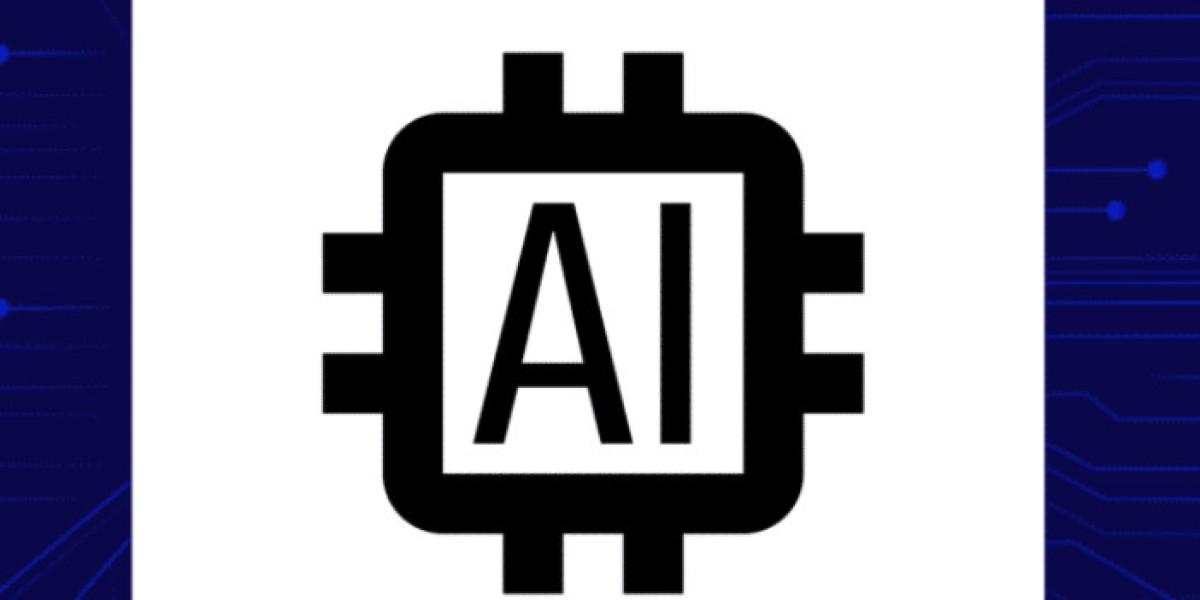In today’s digital-first world, cybersecurity is a top concern for organizations of all sizes. As technology evolves, so do the tactics and strategies of cybercriminals. Traditional security measures, while essential, often fall short in detecting and preventing sophisticated attacks. This is where Artificial Intelligence (AI) steps in, offering advanced tools and strategies to enhance cybersecurity services. By leveraging AI's capabilities, organizations can build more resilient defenses and respond to threats more effectively.
The Role of AI in Cybersecurity
Artificial intelligence is revolutionizing cybersecurity by enabling faster, smarter, and more proactive security measures. Unlike traditional methods that rely on static rules and signatures, AI continuously learns from data, identifies patterns, and adapts to new threats in real time. This dynamic approach is critical in today’s ever-changing threat landscape.
Some key areas where AI plays a pivotal role include:
1. Threat Detection and Prevention
AI-powered systems excel in identifying potential threats before they cause damage. By analyzing massive amounts of data from multiple sources, AI can pinpoint anomalies and detect unusual behavior that may indicate a cyberattack. For example, AI can detect:
Phishing attempts by analyzing email patterns and identifying suspicious links or attachments.
Malware through advanced pattern recognition and behavioral analysis.
Insider threats, where legitimate users engage in malicious activities.
2. Incident Response Automation
Responding to cybersecurity incidents in a timely manner is critical. AI-driven automation streamlines the incident response process by:
Categorizing and prioritizing alerts to focus on high-risk threats.
Initiating predefined actions, such as isolating affected systems or blocking malicious IP addresses.
Reducing response times, thereby minimizing potential damage.
3. Enhancing Endpoint Security
Endpoints such as laptops, mobile devices, and IoT devices are common entry points for cyberattacks. AI enhances endpoint security by continuously monitoring and analyzing activities to detect anomalies. This helps in:
Preventing unauthorized access.
Detecting zero-day vulnerabilities.
Ensuring compliance with security policies.
Applications of AI in Cybersecurity
AI is being integrated into a wide range of cybersecurity applications, making it an indispensable tool for modern security strategies. Here are some notable applications:
1. Predictive Analytics
AI uses predictive analytics to anticipate potential vulnerabilities and attacks. By analyzing historical data and current trends, AI can forecast:
Potential attack vectors.
Vulnerabilities in software or infrastructure.
The likelihood of specific threats targeting an organization.
2. Real-Time Network Monitoring
AI enables continuous monitoring of network traffic, identifying unusual patterns or behaviors that could signal a breach. This helps organizations take proactive measures before an attack escalates.
3. Identity and Access Management (IAM)
AI enhances IAM systems by using biometric data, behavioral analytics, and other advanced methods to verify identities. This ensures that only authorized users can access sensitive systems and data.
4. Fraud Detection
AI’s ability to analyze large datasets quickly and accurately makes it ideal for detecting fraudulent activities, such as:
Unauthorized transactions in financial systems.
Account takeovers in e-commerce platforms.
Identity theft in various online services.
5. Security Operations Center (SOC) Support
AI-powered tools assist SOC teams by automating routine tasks, analyzing alerts, and providing actionable insights. This allows security analysts to focus on more complex issues.
Benefits of Using AI in Cybersecurity
Integrating AI into cybersecurity services offers numerous benefits, including:
1. Improved Accuracy
AI significantly reduces false positives and negatives, ensuring that security teams focus on genuine threats. This improves overall efficiency and effectiveness.
2. Faster Threat Detection
AI can process and analyze data at speeds far beyond human capabilities, enabling real-time threat detection and prevention.
3. Scalability
AI-driven solutions can scale easily to handle large volumes of data and complex environments, making them suitable for organizations of all sizes.
4. Cost Efficiency
While AI requires an initial investment, it reduces long-term costs by automating repetitive tasks, minimizing downtime, and preventing costly breaches.
5. Continuous Learning
AI systems continuously learn and adapt, staying ahead of emerging threats and evolving attack methods.
Challenges in Implementing AI for Cybersecurity
Despite its advantages, implementing AI in cybersecurity is not without challenges. Some of the key hurdles include:
1. Data Privacy Concerns
AI requires access to large datasets to function effectively, raising concerns about data privacy and compliance with regulations.
2. High Initial Costs
Deploying AI-driven cybersecurity solutions often involves significant upfront costs, which can be a barrier for smaller organizations.
3. Complexity and Expertise
Implementing and managing AI systems requires specialized knowledge and expertise, which may not be readily available.
4. Adversarial AI
Cybercriminals are also leveraging AI to develop more sophisticated attacks, such as deepfake phishing and automated hacking tools.
Integrating AI with Data Engineering Services
To maximize the potential of AI in cybersecurity, organizations must have robust data engineering services in place. Data engineering ensures that AI systems have access to high-quality, structured, and real-time data. Key aspects of data engineering that support AI-driven cybersecurity include:
Data Integration: Combining data from various sources for a comprehensive view of the threat landscape.
Data Cleansing: Ensuring data accuracy and reliability for effective AI analysis.
Real-Time Processing: Providing up-to-date information to detect and respond to threats instantly.
By combining AI with advanced data engineering services, organizations can build a powerful cybersecurity framework capable of addressing today’s complex challenges.
Artificial Intelligence Services and Solutions for Cybersecurity
Organizations seeking to enhance their cybersecurity capabilities can benefit from specialized artificial intelligence services and solutions. These services provide tailored tools and strategies to address specific security needs. Key offerings include:
1. AI-Powered Threat Intelligence
These solutions leverage AI to gather, analyze, and interpret threat intelligence, helping organizations stay ahead of potential risks.
2. Custom AI Development
Tailored AI solutions address unique cybersecurity challenges, ensuring seamless integration with existing systems.
3. Managed AI Services
For organizations lacking in-house expertise, managed AI services provide end-to-end support, from implementation to ongoing management.
4. AI Training and Consultation
Expert guidance and training ensure that organizations maximize the value of their AI investments while staying compliant with industry regulations.
The Future of AI in Cybersecurity
The integration of AI into cybersecurity is still in its early stages, but its potential is immense. As AI technology continues to evolve, we can expect:
More Advanced Threat Detection: AI will become better at identifying and neutralizing sophisticated threats, including AI-driven attacks.
Greater Collaboration: Organizations will increasingly share threat intelligence powered by AI, creating a more unified defense against cybercrime.
Enhanced User Experience: AI will simplify complex security processes, making cybersecurity more accessible and user-friendly.
Conclusion
AI is transforming the cybersecurity landscape by providing advanced tools and strategies to combat modern threats. By leveraging artificial intelligence services and solutions, organizations can strengthen their defenses, improve efficiency, and stay ahead of evolving cyber risks. Additionally, integrating AI with robust data engineering services ensures that cybersecurity systems are powered by accurate, real-time data for optimal performance. While challenges remain, the benefits of AI-driven cybersecurity far outweigh the risks, making it an essential component of any modern security strategy. Embracing AI today is not just an option but a necessity for organizations aiming to protect their assets and reputation in an increasingly digital world.








